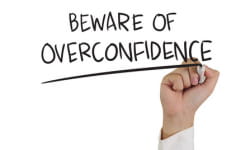The Best Types of Questions to Ask in Your Negotiations

Do you ask good questions in your business negotiations? You want and need information, and to win "yeses" rather than emotional resistance or indifference.
Do you use and can you tell apart the various types of questions in your negotiations? How often can you tell when your chain is being pulled to get a “fight or flight” response out of you?
Asking questions the right way is both an art and a science. Ask the question the wrong way, and the other negotiator might act like a turtle, becoming defensive and withdrawing into their shell. Ask the question the right way, and the other negotiator might “spill the beans.” Let’s look at some of the important distinctions in asking good questions to gain an advantage.
Effective and Useful Questions
The following are good types of questions to have in your repertoire when negotiating to move the sale or purchase in your desired direction, or simply to get the information you need.
1. Open-ended questions
These are the kinds of questions that require a detailed answer in a negotiation and cannot be simply replied to with a “yes” or “no” response. These questions consist of using who, what, where, when, why, and how. The respondent has no alternative but to provide some detail.
Example: “How did you arrive at that particular price?”
2. Open opportunity question
This form of question invites the person to participate and offer their views.
Example: “What do you think of this option as a solution?”
3. Leading question
Just like it sounds, with this type of question, you try to guide the person to your point of view in a persuasive manner.
Example: “With all these advantages I’ve pointed out, don’t you think that this package benefits us both and is the best way to go for both of us?”
Or, another form of leading negotiation question simply tails off and invites the other person to fill in the blanks.
Example: “And after we provide those documents that you just mentioned, you will….?”
4. Low-key question
This is a gentle way to ask a question and not trigger an emotional or hostile response.
Example: “How much more will this cost if we chose this additional feature?”
5. Sequential questions
Sometimes, it can be a wise strategy to ask a series of questions to lead up to and achieve a particular conclusion. Generally, it might be a good idea to plan these kinds of question in advance.
Example: “And after you complete the first delivery, how long will it take for you to have the second shipment ready and sent to us?”
6. Flattery question
This is an effective means to both be complimentary towards the other negotiator and to elicit information, both at the same time. Most people respond well to a friendly compliment.
Example: “Could we draw upon your particular and specialized expertise to add some input into this particular issue?”
7. Probing deeper question
When you need to gain a better insight into a person’s thought process to further illuminate their rationale or position.
Example: “Could you provide us with more detail on how you analyzed the data that you just described and how you reached your conclusion?”
8. Emotional thermometer
There are occasions when you will sense that something might be starting to boil beneath the surface. This might be a good time to address a pending emotional response that might derail the negotiation by simply checking out how the other person feels about certain issues.
Example: “How do you feel about that aspect of the settlement package?”
Landmine Questions
These are the kinds of questions that can be counterproductive, confrontational, and can evoke negative emotional responses. When used in the wrong stage of a negotiation, you might put the other side on the defensive or cause them to respond aggressively in return. Either way, your negotiation could end up being inadvertently derailed.
In our sales negotiation skills courses in particular, participants gain practice in handling these types of manipulative tactical questions. Negotiators are then likely to not feel so shell-shocked in their real-world negotiations, and will instead have their responses ready.
1. Aggressive
Certain kinds of question can result in being too pushy, especially when used at the wrong stage of your negotiation.
Example: “You’re not trying to pull a fast one on us are you?”
2. Loaded
This style of question puts the person on the hot seat regardless of how they respond to the answer, and therefore puts them in a very defensive position. It is very aggressive.
Example: “Do you expect me to believe that this is the only acceptable solution that you will accept?”
3. Emotional trigger
Certain questions are likely to result in triggering a powerful emotional response, particularly when posed with a tint of arrogance or insulting scorn. You are definitely not going to add to your knowledge base by adopting this type of question because it’s like shooting yourself in the foot in the process.
Example: “Do you really think that this ridiculous proposal is worth wasting my time?”
4. Impulsive
This is the type of question that pops out of your mouth before you gave it any thought. Always think, then ask—not the other way around.
Any inappropriate question can serve as an example here.
5. Tricky
These are the questions that are loaded with innuendo and may imply a threat or some similar action.
Example: “Are you going to cede to the demands we’ve outlined, or take us to arbitration?”
This is not to say that occasionally the so-called bad questions aren’t productive in prompting a necessary reaction or response in the right situation to move things along. However, such questions are risky and not necessarily the kinds of questions that will elicit needed information, or that can be positively used when you are trying to build an enduring partnership or relationship with your client or supplier.
 Conclusion
Conclusion
Whether you’re a sales negotiator, a professional buyer, or in any other role involving negotiation, you are asking questions to get the information you need to improve or close your deal. Most of the time, we’re using questions to get the other negotiator to collaborate with us and not against us. To practice asking good questions in your negotiations, we recommend searching online for the best “negotiation seminar near me“.
It is important to think about how to best use your communication skills to get the best results. The manner in which you ask you questions can have a powerful bearing on the results of your negotiation. So, as they say, “Think before you speak.”
- Leigh Thompson, ‘The Heart and Mind of the Negotiator-2nd Edition’, Prentice Hall Business Publishing, (2001).
- J. Lewicki, A. Litterer, W.Minton, M. Sauders, ‘Negotiation’, 2nd Edition, Irwin,(1994).
- Harvard Business Essentials ‘Negotiation’ Harvard Business School Press, (2003)
YOU MAY ALSO LIKE





Useful information. Fortunate me I found your web
site accidentally, and I am stunned why this accident did not came about earlier!
I bookmarked it.
This one is very informative and beneficial.
Hello, this weekend is in my favor, for the reason that this point in time I am reading this impressive educational piece of writing here at my home.
Good ones and Bad ones HAHAHAHAHA TROLOLOl
This article goes far beyond the ordinary Open and Closed question strategies.
Looking forward training with you
Your small dissertation on questions in a negotiation are well thought out and very effective. Somone in your organization has both a formal education and a real education. A rare individual.
It is possible to be aggressive, directed, and powerful without forgetting that without my field "Civility" you're standing still.
Thank You
Article was good. The open-ended question could provide the most useful information. The Leading Question example was seeking an agreement using a yes/no answer. I’d try to rephrase it in a more open-ended style. To make best use of these questions, you must know your audience.